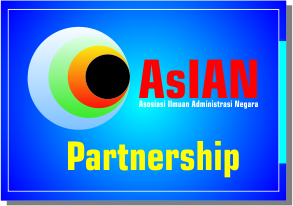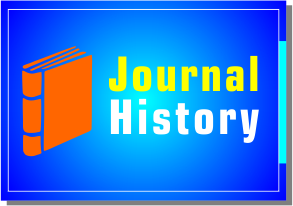Budaya Ruang dan Strategi Pengembangan Bisnis Mikro (Studi Kasus di Pandeglang)
DOI:
https://doi.org/10.31334/trans.v1i2.300Keywords:
Pandeglang Regency, Population Density, Space Culture, Micro Business.Abstract
Regency is included in the category of underdeveloped regions and has the highest poverty rate in Banten Province. Therefore, the Regional Government of Pandeglang together with the central government has sought to develop the potential of the region with various policies, one of which is the Development of the Special Economic Zone of Tanjung Lesung.
Various government policies and the needs of the community, the private sector towards residential space, pushed the northern and southern regions of Pandeglang to experience greater population density. This condition raises a new culture from the local community, namely making the residence and area adjacent to the road as a micro business. The micro business continues to be developed by the government, although it is contrary to the policy of the Pandeglang Regency RTRW.
References
[BPN] Badan Pertanahan Nasional. 2016. Status RTRW provinsi/kabupaten/kota seluruh Indonesia. Jakarta (ID): BPN
[BPS Kabupaten Pandeglang] Badan Pusat Statistik Kabupaten Pandeglang. 2014. Pandeglang dalam angka. Pandeglang (ID): BPS
_______. 2015. Pandeglang dalam angka. Pandeglang (ID): BPS
_______. 2016a. Pandeglang dalam angka. Pandeglang (ID): BPS
_______. 2016b. Kecamatan dalam angka. Pandeglang (ID): BPS
[BPS Provinsi Banten] Badan Pusat Statistik Provinsi Banten. 2016. Banten dalam angka. Banten (ID): BPS
[Bappeda Kabupaten Pandeglang] Badan Perencanaan Daerah Kabupaten Pandeglang. 2011. Dokumen penyusunan RTRW Kabupaten Pandeglang. Pandeglang(ID). Bappeda
[Bappeda Kabupaten Pandeglang] Badan Perencanaan Daerah Kabupaten Pandeglang. 2015. RPJMD Pandeglang 2016-2021. Pandeglang (ID): Bappeda
_______. 2016. Dokumen evaluasi RTRW Kabupaten Pandeglang kerjasama Bappeda Kabupaten Pandeglang-P4W LPPM IPB Bogor.
[Dinas PUPR Kabupaten Pandeglang] Dinas Pekerjaan Umum dan Penataan Ruang Kabupaten Pandeglang. 2017.Fakta dan Analisa Penyusunan Dokumen Rancangan Revisi Rencana Tata Ruang Wilayah (RTRW) Kabupaten Pandeglang Tahun 2011-2031. Kerjasama Dinas PUPR Kabupaten Pandeglang- P4W LPPM IPB Bogor.
Fraenkel JR, Norman EW. 1996. How to Design and Evaluate Research in Education. New York: McGraw-Hill.
Lisdiyono E. 2008. Legislasi Penataan Ruang tentang Pergeseran Kebijakan Hukum Tata Ruang dalam Regulasi Daerah di Kota Semarang. [Disertasi]. Semarang (ID): Universitas Diponegoro.
Opeyemi AY. 2012. Empirical Analysis of Resource Curse in Nigeria. Economics and Management Sciences 1 (6): 19-25.
Rustiadi E, Hadi S. 2004. Pengembangan Agropolitan Sebagai Strategi Pembangunan Perdesaan dan Pembangunan Berimbang. Makalah Workshop Pengembangan Agropolitan Sebagai Strategi Pembangunan Perdesaan dan Wilayah Secara Berimbang. P4W-IPB dan P3PT. Bogor.
Sebo RE. 1996. Introduction to tourism texbooks: A descriptive content analysis [Disertasi]. University of Connecticut
Somantri GR. 2005. Memahami Metode Kualitatif. Makara, Sosial Humaniora. 9 (2): 57-65.
Downloads
Published
Issue
Section
License

This work is licensed under a Creative Commons Attribution-ShareAlike 4.0 International License
Please find the rights and licenses in Transparansi : Jurnal Ilmiah Ilmu Administrasi By submitting the article/manuscript of the article, the author(s) agree with this policy. No specific document sign-off is required.
- License
The commercial use of the article will be governed by the Creative Commons Attribution license as currently displayed on Creative Commons Attribution-ShareAlike 4.0 International License.
2. Author(s)' Warranties
The author warrants that the article is original, written by stated author(s), has not been published before, contains no unlawful statements, does not infringe the rights of others, is subject to copyright that is vested exclusively in the author and free of any third party rights, and that any necessary written permissions to quote from other sources have been obtained by the author(s).
3. User Rights
Transparansi : Jurnal Ilmiah Ilmu Administrasi spirit is to disseminate articles published are as free as possible. Under the Creative Commons license, Transparansi : Jurnal Ilmiah Ilmu Administrasi permits users to copy, distribute, display, and perform the work for non-commercial purposes only. Users will also need to attribute authors and Transparansi : Jurnal Ilmiah Ilmu Administrasi on distributing works in the journal and other media of publications.
4. Co-Authorship
If the article was jointly prepared by more than one author, any authors submitting the manuscript warrants that he/she has been authorized by all co-authors to be agreed on this copyright and license notice (agreement) on their behalf, and agrees to inform his/her co-authors of the terms of this policy. Transparansi : Jurnal Ilmiah Ilmu Administrasi will not be held liable for anything that may arise due to the author(s) internal dispute. Transparansi : Jurnal Ilmiah Ilmu Administrasi will only communicate with the corresponding author.
5. Miscellaneous
Transparansi : Jurnal Ilmiah Ilmu Administrasi will publish the article (or have it published) in the journal if the article’s editorial process is successfully completed. Transparansi : Jurnal Ilmiah Ilmu Administrasi editors may modify the article to a style of punctuation, spelling, capitalization, referencing and usage that deems appropriate. The author acknowledges that the article may be published so that it will be publicly accessible and such access will be free of charge for the readers as mentioned in point 3.
Every accepted manuscript should be accompanied by "Copyright Transfer Agreement"prior to the article publication.











